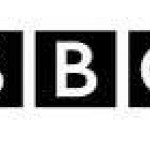- Settore: Broadcasting & receiving
- Number of terms: 5074
- Number of blossaries: 1
- Company Profile:
The largest broadcasting organisation in the world.
A pesticide is a substance used to kill a pest, and in a farming context a pest is anything that attacks or competes with crops. Hence, there are many different types of pesticides: for example, insecticides kill insects, and herbicides kill weeds. The chemicals used in pesticides can sometimes be toxic to humans, however, so organic farming endeavours to use natural rather than synthetic substances as pesticides.
Industry:Natural environment
A car enthusiast; often used to describe those who are most reluctant to limit their car use or petrol consumption.
Industry:Natural environment
Photovoltaics are materials that produce electricity from sunlight. A single photovoltaic cell can be used to power small devices such as calculators; combined in solar panels they can be used to power solar water heating. Most cells are manufactured from silicon.
Industry:Natural environment
Planning permission is consent, usually from a local council, to build on land, or change the use of land or buildings. Significant structural change, such as that often associated with microgeneration projects, is likely to require planning permission. Changes to listed buildings require additional, separate consent.
Industry:Natural environment
A polymer is a giant molecule made up of thousands of atoms. It can be natural or man-made (synthetic). Many plastics in everyday use are polymers, such as polythene or PVC; but then so is cellulose, which makes up wood pulp from which paper is manufactured.
Industry:Natural environment
The levels of carbon dioxide in the atmosphere prior to the start of the Industrial Revolution. These levels are estimated to be about 280 parts per million by volume (ppmv). The current level is around 380 ppmv.
Industry:Natural environment
In a central heating system, the programmer is the device containing a clock that turns the heating and hot water systems on and off at designated times, while the thermostat sets the maximum temperature.
Industry:Natural environment
Renewable energy comes from natural sources that can be replenished and not permanently depleted - such as biomass, hydro-power, geothermal heat, solar power, wind power, and wave and tidal power - and most of which do not produce CO2emissions. They are unlike fossil fuels, which took millennia to form and cannot be replenished.
Industry:Natural environment
A renewables obligation is the legal requirement for UK energy providers to source a certain percentage (currently 8%) of their energy from renewable sources. They are awarded renewable obligation certificates (ROCs) to demonstrate that they have done so.
Industry:Natural environment
Secondary glazing is a less effective form of double glazing, used where the latter is unaffordable or undesirable in some way (such as in listed buildings). A separate layer of glass or plastic is fitted to the inside of the existing window frame. The gap between the two panes determines its effectiveness in insulating against heat loss and noise.
Industry:Natural environment
